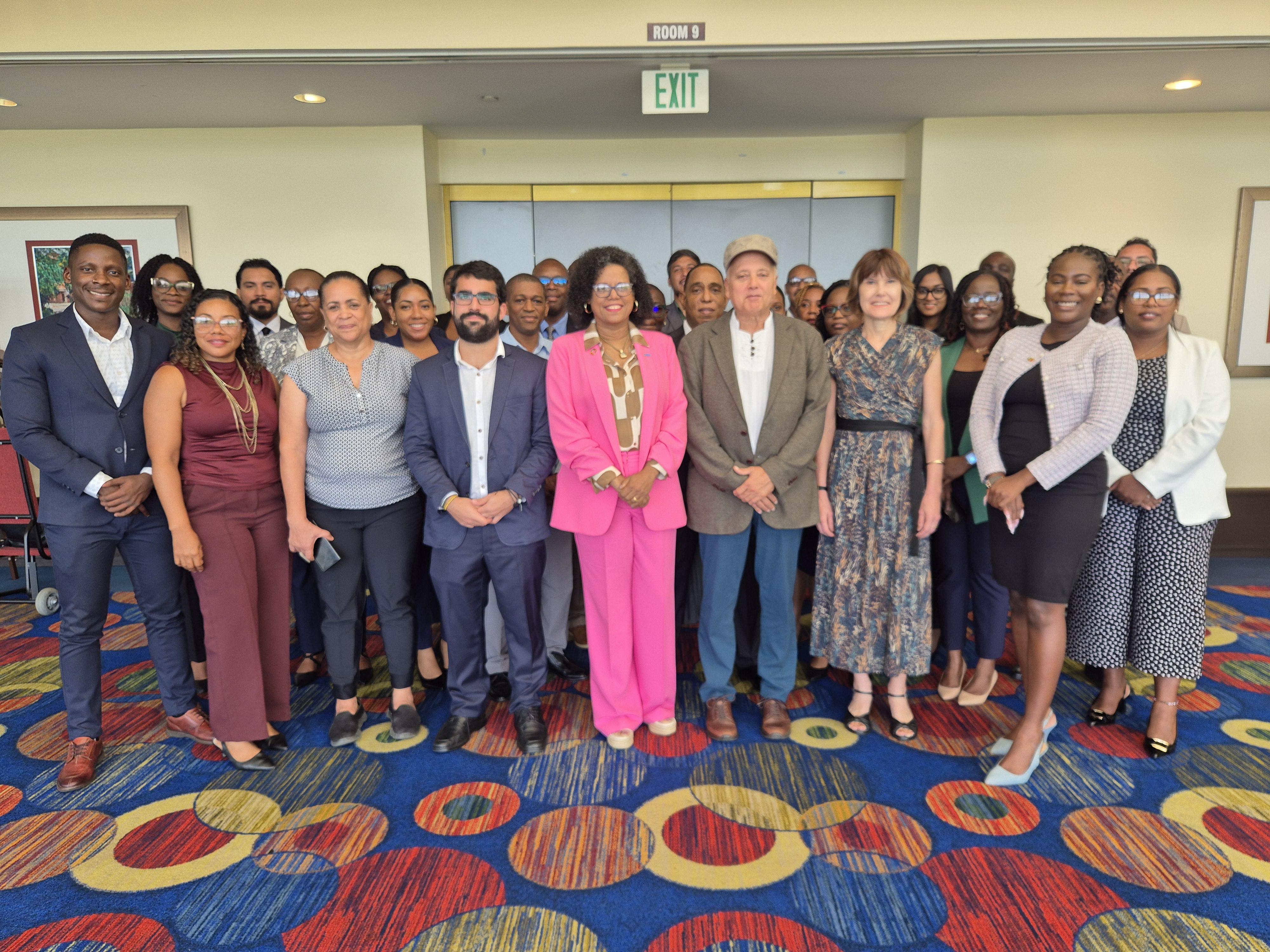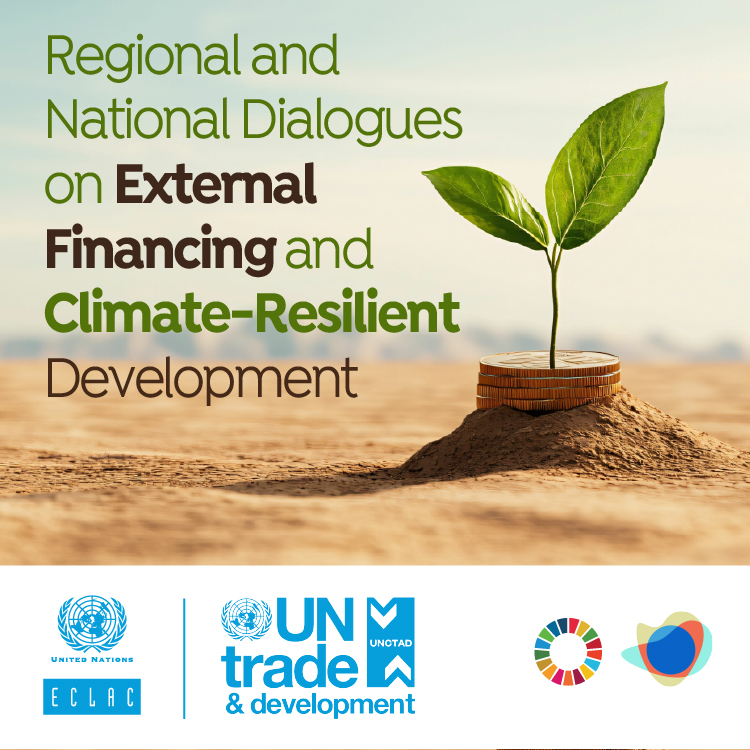For Climate Finance, Caribbean Countries Must Link Climate Finance with Sustainable Development
Work area(s)
Caribbean countries must be able to make the connection between climate finance and sustainable development to receive much-needed funding for climate resilience, mitigation, and adaptation. That is the view of ECLAC Caribbean consultant Cathal Healy-Singh, on how Caribbean SIDS (Small Island Developing States) can tackle what has emerged as one of their main development challenges.

Healy-Singh was presented at ECLAC Caribbean’s Regional and National Dialogues on External Financing and Climate-Resilient Development. The focus of the meeting was to examine the challenges and develop strategies to mobilize external resources for climate-resilient development in Belize and Saint Vincent and the Grenadines as well as the wider Caribbean. He spoke to the key findings of the reports on mobilizing greater climate financing in these two beneficiary countries, which can be applied to the entire region: there must be a clear climate rationale for development in order to access funding for climate-resilient projects.
“We have to be able to explain how what we want to do helps people or ecosystems to cope with the impacts, which is the adaptation side. In short, the answer to this question is: why is this a climate action? That brings us to: what’s the relationship between climate resilience and sustainable development? We have to marry sustainable development to the climate rationale to unlock the climate finance.
One needs to be clear about the relationship between resilience and climate development. They are directly linked because climate change directly threatens our development goals of reducing poverty and achieving food security. We need to build resilience that protects these goals from climate impacts and ensures that development lasts. Conversely, sustainable development builds a foundation for climate resilience. We need to be very clear about these things.”
ECLAC supported the national governments of Belize and Saint Vincent and the Grenadines to create a strategy to achieve their climate goals, attract sustainable investment, and avoid unsustainable debt accumulation. At the opening ceremony, ECLAC Caribbean Director Miosotis Rivas Peña said Caribbean SIDS need even more financial resources to deal with climate impacts than other developing countries, because of the effects of hurricanes and other extreme weather events.
“For highly vulnerable SIDS, we will need to leverage external financing on a larger scale. This is why it is so crucial for the two countries and the wider region to examine the institutional and market-related constraints to mobilizing external finance to achieve their climate goals. This is, in fact, the foundation for building adequate systems to mobilize and channel funding to high-impact climate resilience projects.”
Director Rivas Peña said the studies conducted in Belize and Saint Vincent and the Grenadines have shown that Caribbean countries need to strengthen the capacity of their institutions to access climate funding—by ensuring staff receive relevant training, facilitating knowledge transfer, and improving technical implementation capacity.
Economic Affairs Officer Sheldon Mclean says the climate finance challenge for Caribbean SIDS is becoming more difficult. “If left unaddressed, these escalating challenges will ultimately lead to the breakdown of productive systems and economic collapse. GDP per capita is already projected to plummet by 6.3% by 2030, while labour productivity is expected to shrink by 4% to 5% by 2050.” Mclean says the collaboration between ECLAC and UNCTAD is just one initiative designed to help Caribbean SIDS formulate instructive, tailored and holistic strategies to tackle the challenge that debt, climate challenge and the development imperative create.
The dialogues are part of a project to provide technical advice on mobilizing climate financial resources for greener and climate-resilient development, based on its medium-term objectives of achieving a 50% debt-to-GDP ratio by 2030 and avoiding the climate-debt trap. The four-year project was implemented by ECLAC, the Economic Commission for Africa (UNECA), and UNCTAD, along with the governments of Belize, Cabo Verde, the Union of the Comoros, and Saint Vincent and the Grenadines.
…….
Related content

Regional and National Dialogues on External Financing and Climate-Resilient Development
Guided by an enhanced framework, UNCTAD led data collection field missions, identifying their current and potential external financial options, blockages and impediments to the uptake of…
Subregional headquarter(s) and office(s)
Country(ies)
-
Trinidad and Tobago
-
Belize
-
Saint Vincent and the Grenadines